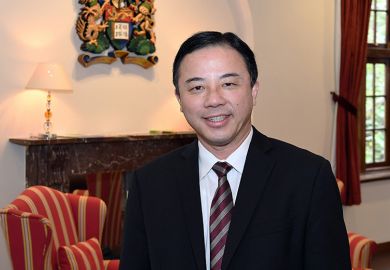There is “a tremendous atmosphere of gagging and silencing” in UK universities that prevents academics from speaking out when they feel that they have been treated unfairly.
This is according to Marina Warner, until recently professor of literature, film and theatre studies at the University of Essex. She left her post after 10 years at the university and, rather than stay quiet, publicly documented the reasons for her departure in an article for the London Review of Books.
Her criticism relates to the way in which the university is managed, which Professor Warner claims has resulted in scholars being pushed to complete an unmanageable list of activities in the pursuit of “prestige, publicity, glory, impact”; a shift of emphasis from research to teaching in order to attract lucrative overseas students; and a leadership team that enforced top-down change in a manner that, she said, often showed no regard for the opinions of academic staff.
At one point, she compares UK higher education more generally to the world of Chinese communist corporatism, “where enforcers rush to carry out the latest orders from their chiefs in an ecstasy of obedience to ideological principles which they do not seem to have examined, let alone discussed with the people they order to follow them”.
Speaking to Times Higher Education, Professor Warner said she feared that “a culture of obedience and deference” was taking hold within universities.
“People used to appreciate independent-mindedness and freedom of speech and advocacy of ideas,” she said. “People at large still value that, I think, and some parts of the world are in flames because of it.”
However, it was increasingly difficult for academics to criticise their institutions, she said, even after they leave their post, because of gagging orders put in place to prevent them from speaking openly.
“You have to decide, as I did, to break all connections [with the university],” she said – adding that this was something she was fortunately able to do because of her career outside academia.
“I was in a lucky position and I wanted to use my lucky position,” she said of the decision to go on record with her experience. “I can’t tell you how many letters I’ve had [since the LRB article was published] – an avalanche.”
One such letter asked: “If they can do this to you with your reputation, what will they do to postdocs just starting out?”
There could have been “an element of pour encourager les autres” about her treatment by Essex, she said, adding that the university’s refusal to compromise for a long-standing and prestigious academic such as her might mean that others would “come in line because they will be frightened”. She said she hoped that writing her account would help to raise awareness of the changes that are taking place in UK universities.
“In this new system…the chain of command leads to administrators,” she said. “Academics are subjugated to the managers.”
Essex’s vice-chancellor, Anthony Forster, who comes in for particular criticism in the LRB article, declined an invitation to speak to THE. But in a statement the university said: “Students are our priority and we are committed to delivering a transformational educational experience, where students are taught by the leading thinkers in their field and have the opportunity to undertake research. Excellence in education and research are our two priorities and they enjoy equal esteem.”
Register to continue
Why register?
- Registration is free and only takes a moment
- Once registered, you can read 3 articles a month
- Sign up for our newsletter
Subscribe
Or subscribe for unlimited access to:
- Unlimited access to news, views, insights & reviews
- Digital editions
- Digital access to THE’s university and college rankings analysis
Already registered or a current subscriber? Login





